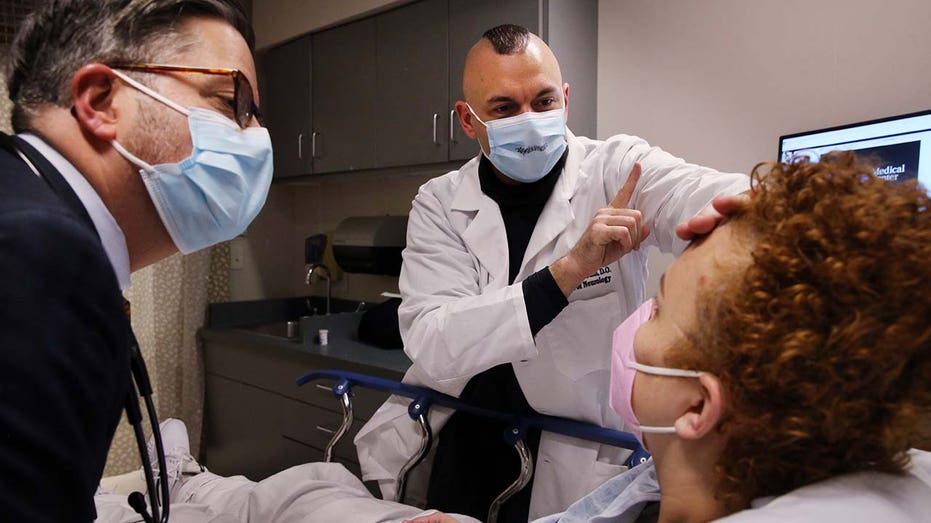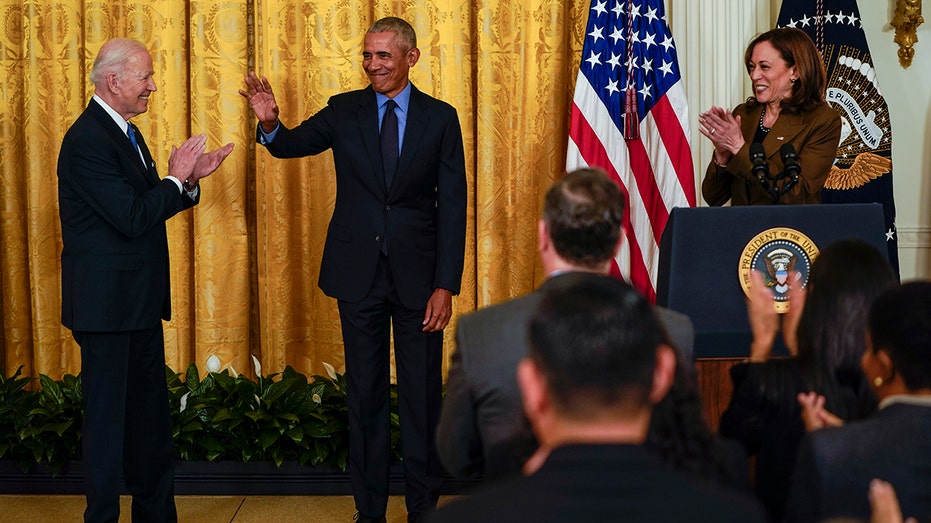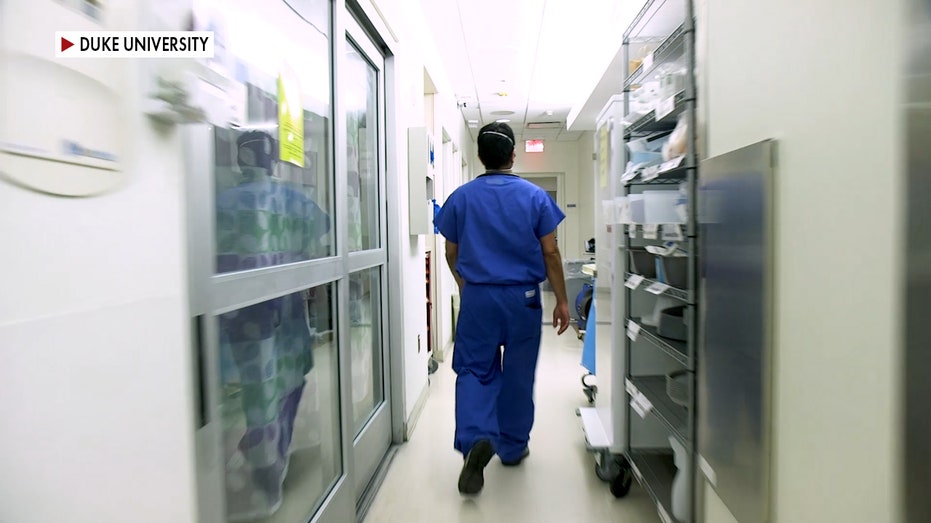Former CKE Restaurants CEO Andy Puzder reacts to the arrest of a suspect in the killing of UnitedHealthcare CEO Brian Thompson on Making Money.
The callous and even mocking reactions on social media to the cold-blooded murder of UnitedHealthcare CEO Brian Thompson last week serve as further evidence that many Americans’ frustrations with the health insurance industry are boiling over.
But some experts say the government, not health insurance companies, deserves much of the blame.

Americans’ frustrations with the health insurance industry are boiling over. (Photo by Craig F. Walker/The Boston Globe via Getty Images / Getty Images)
“There is a very large reserve of untapped frustration with health insurance and the hassle and high cost of care, and this event sort of tapped into that accidentally,” says Dean Clancy, senior health policy fellow at Americans for Prosperity (AFP). “The murder is, of course, horrible, but it is good that policymakers are waking up to just how frustrated people are.”
In an interview with FOX Business, Clancy said a lot of the problems with the industry are a direct result of the 2010 Affordable Care Act, former President Obama’s signature legislation known as Obamacare, which Clancy said “turned the health insurance industry into basically a massive recipient of taxpayer subsidies.”
LEAKED VIDEO SHOWS UNITEDHEALTH CEO SAYING INSURER WILL CONTINUE PRACTICES THAT COMBAT ‘UNNECESSARY’ CARE
Clancy argues that health insurers have been the most profitable companies in America for basically the past decade, directly as a result of Obamacare, yet people haven’t seen a corresponding improvement in the quality of care or their ability to access it quickly and conveniently.

President Joe Biden with former president Barack Obama and Vice President Kamala Harris for an announcement expanding access to coverage under the Affordable Care Act in the Rose Garden at the White House on April 5, 2022. (Photo by Demetrius Freeman/The Washington Post via Getty Images / Getty Images)
He says that before Obamacare, health care was a sore point, but nothing like it has been in the wake of the legislation.
So what’s changed?
“First of all,” Clancy said, “all kinds of federal rules and mandates and price controls that have changed insured behavior so that they are constantly increasing their prices and shrinking people’s access to doctors and hospitals.”
Clancy said that is one of the little known effects of Obamacare, and it’s called “network shrinkage.” Basically, the insurers are incentivized to have as few doctors and hospitals in their health plan as possible, and so people are having to drive further for an appointment, and wait longer for care.
HEALTH INSURER REVERSES COURSE ON ANESTHESIA POLICY AFTER RECEIVING BACKLASH
Clancy acknowledges that the health care system was not perfect prior to Obamacare, but says at least patients could get insurance that was affordable and portable and that was tailored to their needs, and now that is much harder.
Hologic Inc. President and CEO Steve MacMillan joins ‘Mornings with Maria’ to discuss his company’s latest technological strides in women’s health.
Also under Obamacare, taxpayers are now on the hook to transfer hundreds of billions of dollars a year directly to insurance companies, and taxpayers are paying for that, and we’re hoping that some health care trickles down to patients, Clancy said. He believes it would make a lot more sense and be more affordable if those funds were under the control of the patients directly, rather than shipping them to insurance companies.
“People need insurance and we should have a safety net so that everybody has access to care when they need it,” Clancy told FOX Business. “But these lavish subsidies are really just padding the bottom line of the health insurers without corresponding benefit for patients.”
UNITEDHEALTHCARE CEO MURDER COMES AMID INSURANCE COVERAGE CONTROVERSIES
Clancy said one way to fund patients rather than insurance companies is by directing some of the money currently being spent on Obamacare subsidies and Medicaid and putting it directly into the Health Savings Accounts of patients to let them decide how to spend that money. He said that would bet more efficient, give the patient more choice and control, and everybody’s better off.

A health care workers walks through the halls at Duke university. The cost of health insurance continues to soar, while frustrations are rising over denial of care. (Duke University)
AFP’s stance is that markets work in health care when you let them. Clancy said there is real-world evidence, pointing to the fact that the cost of Lasik surgery has never been paid for by insurance, yet the price of the procedure is constantly falling and the quality is constantly improving. Same with cosmetic surgery.
He said people are better shoppers when they’re using their own money. And while there needs to be safety nets and guardrails and people do need health insurance, it should be insurance that’s tailored to patients’ needs, rather than the current one-size-fits-all approach that he says has proven to be very expensive and inflationary.
GET FOX BUSINESS ON THE GO BY CLICKING HERE
“We need a William Wallace ‘Braveheart’ moment where the American people say ‘Freedom!’” Clancy said. “To hell with all this bureaucracy and paperwork and prior authorization and skinny provider networks and endlessly rising premiums. Let’s just have freedom.”
